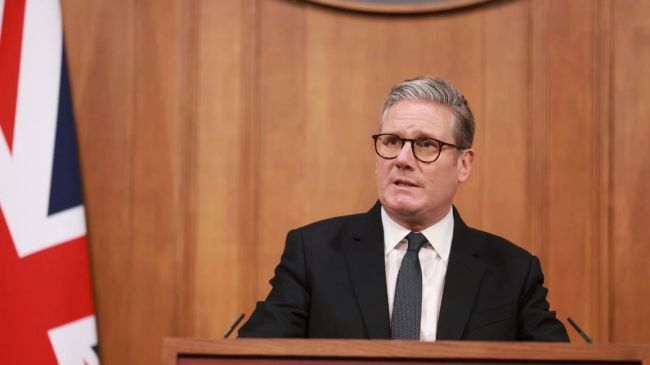Opinion Keir Starmer’s Labour’s lost — it could do with a shot of boldness
As a disgruntled Jeremy Corbyn-aligned faction on the left forms a new party, adding to the ruling party’s woes, the UK PM needs to embrace a more radical transformation to tackle Britain’s structural weaknesses
 In the lead up to last year’s election, Starmer’s approach was focused on letting the Tories score own-goals while remaining silent himself (File Photo)
In the lead up to last year’s election, Starmer’s approach was focused on letting the Tories score own-goals while remaining silent himself (File Photo) Keir Starmer has marked his first anniversary in office with the Labour government squarely on the backfoot. A year ago, he had resolutely declared outside Downing Street that “the work of change begins”. The reality points to an uninspiring scorecard. Promises to stop migrant boats, cut hospital waiting lists and build more houses are not trending well. Economic productivity is lagging. Last week, Starmer was confronted by a rebellion, as backbenchers diluted a bill to cut sickness and disability benefits. In parliament the next day, a beleaguered chancellor Rachel Reeves, wept and yields on Britain’s debt shot up. The party’s polling is abysmal as it trails Reform UK, a surge from the right led by Nigel Farage. The news that a disgruntled Jeremy Corbyn-aligned faction on the left may form a new party adds to Labour’s unease. As Starmer reflects over the summer, the truth is that he needs to embrace a more radical transformation to tackle Britain’s structural weaknesses and reset the country’s direction.
Labour came into office hoping to set a shining example for centrism. Starmer loftily claimed that he would tackle Britain’s myriad issues by harnessing his technocratic cabinet and his parliamentary majority. That has not happened. While it may be hard to match the internecine levels of Tory feuding in the Boris Johnson era, the bickering within Labour during the past year has been noteworthy too. The controversy over Sue Gray’s appointment as Starmer’s Chief of Staff and her eventual resignation meant that Starmer’s first 100 days were unable to set a clear tone. Starmer’s relationship with Labour MPs also looks to be fractured.
On the economic front, Britain is stuck in its longest period of stagnation since the 1930s. Growth since the last election has been 0.8 per cent. The cost of servicing debt as a share of GDP is the highest it has been in 35 years. Public finances simply do not add up. The economy remains stymied by the burden of the employers’ national insurance rise in Rachel Reeves’ first budget. The addition of £40 billion worth of tax raises has devastated small and medium firms. Proposed reforms to workers’ rights also perversely risk acting as a disincentive to hiring. Starmer and the chancellor have not promoted private enterprise. Changes to inheritance tax rules and broadening the taxation regime applicable to non-domiciled individuals has resulted in a record number of wealth creators leaving the UK. All this at a time when defence spending needs to necessarily rise. If public spending is not curtailed and growth remains low, further tax rises may be in the pipeline.
In relation to immigration, the small boats crisis has worsened. A record 50,000 people are set to arrive across the channel in 2025. The government scrapped the Tories’ controversial Rwanda offshore processing plan but hasn’t come up with a suitable deterrent in its place. On NHS reform, the government has some early success in settling pay disputes but trade unions remain restless. Waiting lists remain long with over six million people waiting for procedures. Social care in an ageing society is a huge untackled challenge. On house building, the government has sought to cut red tape but it is the lowest in nine years.
Where the government has probably achieved the most is on foreign affairs. Starmer has maintained positive relations with Europe. He has navigated the relationship with Donald Trump artfully (thus far). Few expected Starmer to strike a rapport with President Trump but he has managed that adroitly. Trade deals with the US and India also generated positive headlines. Starmer’s relationship with President Volodymyr Zelenskyy has also ensured that Britain remains an interlocutor in an effort to bring a thaw in the Ukraine-Russia conflict. But none of that has helped him domestically where bread-and-butter issues dominate.
What can be done then? Starmer should shelve mere incrementalism and act bolder. Reforms to planning, welfare, taxes, NHS, bureaucracy are all too timid. The Prime Minister should also be upfront with his party and the wider electorate about the challenges facing the country. An indefinite culture of welfarism and public spending increases is not sustainable. Staying silent has pleased no one — he has been outflanked on the right, centrists are unhappy and the far-left breakaway stands to shore up the millennial vote. Across the pond, Democrats should also reflect on this lesson. Zohran Mamdani may have won an early New York City mayoral primary but centre-left populism with uncosted assumptions can be a turn-off to the wider electorate.
In the lead up to last year’s election, Starmer’s approach was focused on letting the Tories score own-goals while remaining silent himself. But to govern is to choose, as Starmer is learning, painfully. Sitting on the fence is no option. If Starmer is to make the most of his majority, he should push on with an agenda for economic renewal for the long term that prioritises wealth creation and makes tough choices for the long-term. That would truly signify “taking back control”.
The writer is a London-based lawyer and political commentator






